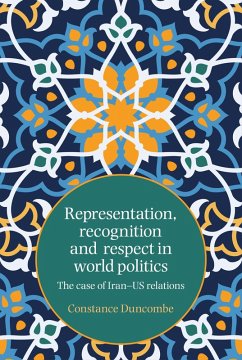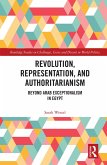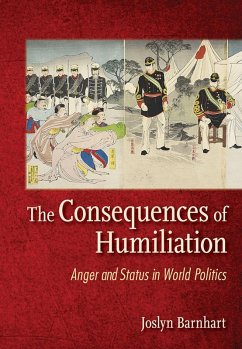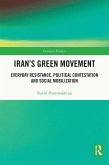This timely book explains how recognition and misrecognition have the power to fuel conflict and to initiate reconciliation.
Constance Duncombe presents a detailed conceptual and empirical investigation of one of the most significant flashpoints in global politics: the fraught bilateral relations between the US and Iran. Duncombe uses this relationship to explore the importance of representation in shaping the identity of a state, as well as how it is recognised by others on the world stage.
In 2015, Iran and the US reached an agreement on the framework for a long-term deal that allows Iran limited nuclear technological capacity in exchange for the lifting of debilitating economic sanctions. In light of decades of animosity between Iran and the US, which previously thwarted attempts on both sides to reach an amicable agreement, this book asks how we can best explain the initial success of this deal given the Trump administration's 2018 US withdrawal from the agreement.
Constance Duncombe presents a detailed conceptual and empirical investigation of one of the most significant flashpoints in global politics: the fraught bilateral relations between the US and Iran. Duncombe uses this relationship to explore the importance of representation in shaping the identity of a state, as well as how it is recognised by others on the world stage.
In 2015, Iran and the US reached an agreement on the framework for a long-term deal that allows Iran limited nuclear technological capacity in exchange for the lifting of debilitating economic sanctions. In light of decades of animosity between Iran and the US, which previously thwarted attempts on both sides to reach an amicable agreement, this book asks how we can best explain the initial success of this deal given the Trump administration's 2018 US withdrawal from the agreement.
Dieser Download kann aus rechtlichen Gründen nur mit Rechnungsadresse in A, D ausgeliefert werden.









